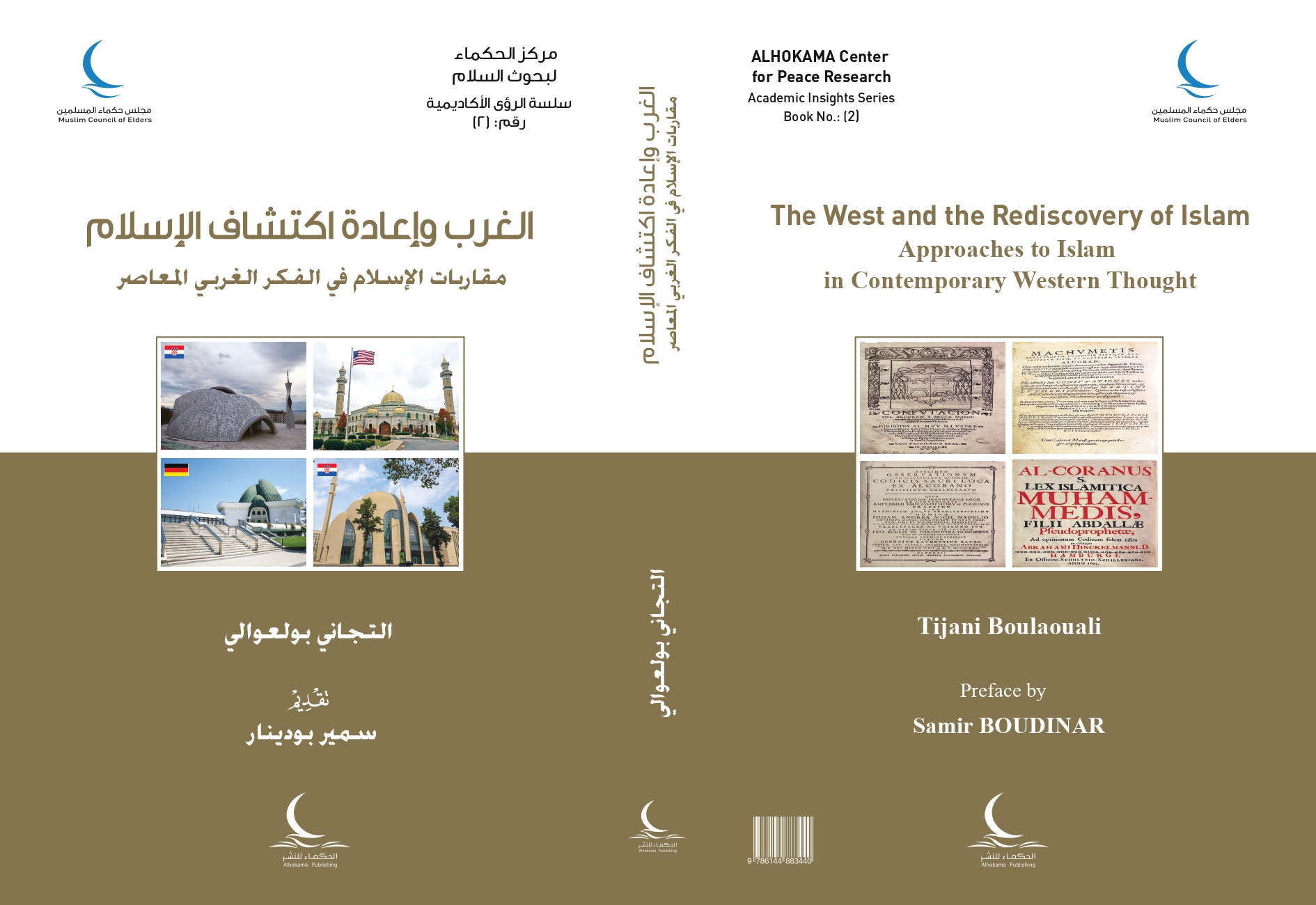The West and Rediscovery of Islam – Latest Release from the Muslim Council of Elders at the Cairo International Book Fair 2024
The Muslim Council of Elders’ booth at the Cairo International Book Fair 2024 is presenting the book "The West and Rediscovery of Islam: Approaches to Islam in Contemporary Western Thought" by Professor Tijani Boulaouali, the Director of the European Studies Program at Al Hokama Center for Peace Research and an expert researcher in European affairs.
The book, published by Al Hokama Center for Peace Research, indicates that the profound impact of Islam on European identity persists and extends beyond religious influence. Its cultural aspects have become integral to European societies where Muslims constitute a social element, contributing to cultural diversity. Given this reality, there is a pressing need for a reevaluation of Islam in the West, examining the conceptual relationship between the two and studying the potential of "Western European Islam" historically and in the future. The book explores prevalent Western perspectives on Islam, using them as a starting point to explore the future of Islam in Europe.
The book also emphasizes the critical importance of reaching agreements and understanding differences regarding the concepts and terms governing the relationship between Islam and the West. It addresses the urgent need to establish a positive intellectual foundation for the relationship between Islam as a religion and culture, and the West as a cultural and political entity. This is crucial for understanding Islam's potential contributions to the West's future, beyond the identity tensions often associated with the historical relationship between these two entities.
The author further highlights that the study operates within the framework of exploring the relationship between Islam and the West from the European and Western context. It serves as a contribution to a series of intellectual and research endeavors that are interconnected, focusing on the nature of the contemporary presence of Muslims in Europe and the West in various historical, religious, cultural, and social dimensions. The book starts with the assumption that Islam, as the foreign or exotic "other" in traditional Orientalist studies, is continually subjected to a process of "rediscovery" by the European or Western self. This ongoing process involves a renewed perception of aspects of Islam according to the context and new cultural conditions. The more objective this perception is, the more diverse issues of Islam are accommodated, narrowing the communicative, cognitive, and psychological gap between self and other, or more precisely, between Islam and the West.
Likewise, the author notes that contemporary Western thought, since the 1990s, has introduced approaches to Islam that differ significantly from traditional Orientalism. These approaches dismantle preconceived notions and assumptions that underlie traditional Orientalist theories and contemporary Christian studies. They create a methodological and epistemological rupture with the distorted intellectual current. Moreover, these approaches objectively study Islam, devoid of any ideological or doctrinal bias, aiming to understand the Islamic phenomenon in its various dimensions and manifestations. This accumulation of knowledge suggests a need to investigate the positive transformation that has occurred in the traditional image of Islam.
The book is divided into three sections. The first section, "The Binary of Islam and the West: A Conceptual Comparative Approach," includes chapters on the comparative terminological reading of the concepts of Islam and the West, and the dialectics of Islam and the West. The second section, "Islam in the West: An Extension in History and Imagination," comprises two chapters: a historical overview of the presence of Islam in the West and an analysis of the understanding of Islam as a concept, history, and reality. The third and final section of the book, "Approaches to Islam in Contemporary Western Thought," includes five chapters: Islam in the Western philosophical perspective, Islam in the Islamic studies perspective, Islam in the spiritual approach, Islam in the political thought perspective, and Islam and the critical approach to Western ideology.
The Muslim Council of Elders will participate at the Cairo International Book Fair, in its 55th edition, from January 24 to February 6, 2024. The booth will feature a large number of releases from the Council, along with various seminars, activities, and events focused on promoting values of peace and coexistence among all people.
The Muslim Council of Elders’ booth is located at the Cairo International Book Fair, adjacent to the Al-Azhar booth, in Hall (4) at the Egypt International Exhibition Center in the Fifth Settlement.

